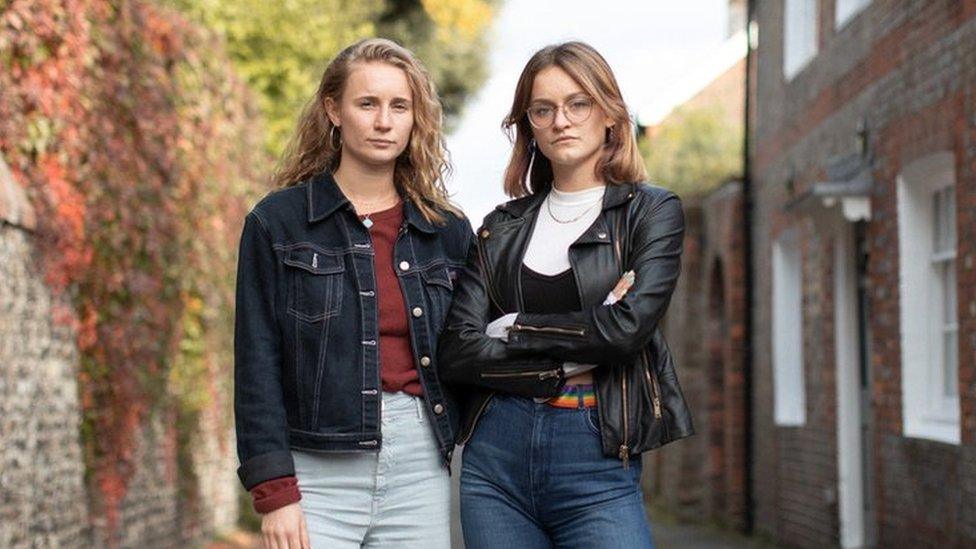Sarah Everard: Court challenge over Clapham vigil ban under way
- Published
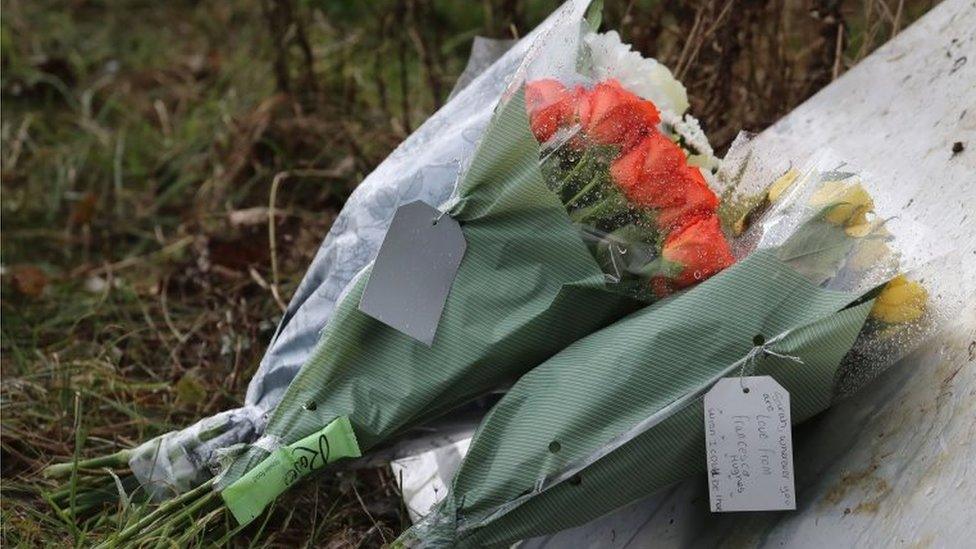
A High Court hearing is under way after police said a planned vigil following the death of Sarah Everard would be "unlawful".
Lawyers representing the organisers of Saturday's event in London say the decision goes against human rights law.
In a statement, organisers Reclaim These Streets said they were told by the Metropolitan Police the event would not be allowed amid Covid restrictions.
Ms Everard was last seen alive on 3 March in Clapham, south London.
Reclaim These Streets said that by forcing them to cancel the vigil, the Met Police would be "silencing thousands of women" who want to "stand up for our right to feel safe on our streets".
As well as the vigil on Clapham Common, sister events are planned for other cities and towns including Cambridge, Cardiff, Leeds, St Andrews and Liverpool.
Speaking on a visit to Queen's University in Belfast, Prime Minister Boris Johnson said "no woman should walk our streets in fear" and that the whole country would be "united in their feeling" for Ms Everard's family and friends.
On whether or not vigils should be allowed to go ahead this weekend, he said that the issue was before the courts now and was "an operational matter for the Met".
Scotland's health secretary Jeane Freeman has called on people not to take part in the Reclaim the Streets vigils, warning that it was not safe to do so while coronavirus was not under control.
On Friday, police confirmed that a body found in woodland in Kent on Wednesday had been identified as Ms Everard.
A serving Metropolitan Police officer has been arrested on suspicion of murder in relation to her disappearance and Scotland Yard is to be investigated over its handling of an allegation of indecent exposure against him.
Vigil organiser Anna Birley: "There's something we need to be angry about and stand up for as women"
One of the organisers of the south London vigil, Anna Birley, told the BBC meetings were ongoing with the Met and Lambeth Council, while the group were hopeful the High Court would be able to rule on the issue on Friday.
She told BBC Radio 4's Today programme there had been an "about-face" by police, after the group had initially been told they were looking at ways to navigate the difficulties.
She said organisers were "put under increasing pressure" and told they would be at risk for organising the event, along with everybody who attended.
Ms Birley added that organisers had emphasised the importance of social distancing and wearing masks and had chosen Clapham Common due to its open nature.
MPs have called for the vigil to be allowed to go ahead, with Conservative Caroline Nokes saying she had asked Home Secretary Priti Patel to step in.
The chair of the Commons Women and Equalities Committee said the Met Police appeared to have given organisers "mixed messages" and said the home secretary could "send a very clear message that at this awful time" when women wanted to express their sorrow at the tragic case.
Labour deputy leader Angela Rayner said she hoped the event could go ahead and said "women's voices cannot be silenced".

Open to interpretation

The laws of the coronavirus restrictions are incredibly complicated - almost impossible to follow without repeated and careful reading.
On top of that, they leave many decisions on what's lawful or not to frontline police rather than spelling out exactly when and how they should enforce the rules.
Today, no-one is allowed to leave home "without reasonable excuse", but the examples in the regulations are not exclusive.
In other words, it's open to interpretation whether a well-organised and Covid-safe demonstration would be lawful or not.
On top of that, every decision by the police to restrict a protest has to first consider the rights of freedom of assembly and speech.
During last June's Black Lives Matter demonstrations, senior officers took a softly-softly approach and allowed them to take place.
So Reclaim These Streets want the High Court to say the police came down on the wrong side of the human rights balancing exercise - failing to respect the need to remember Sarah Everard and all women who have been victims of violence.

In the statement, Reclaim These Streets said the event was planned by a group of women "who wanted to channel the collective grief, outrage and sadness in our community".
"Our plan was to hold a short gathering, centred around a minute of silence," they said.
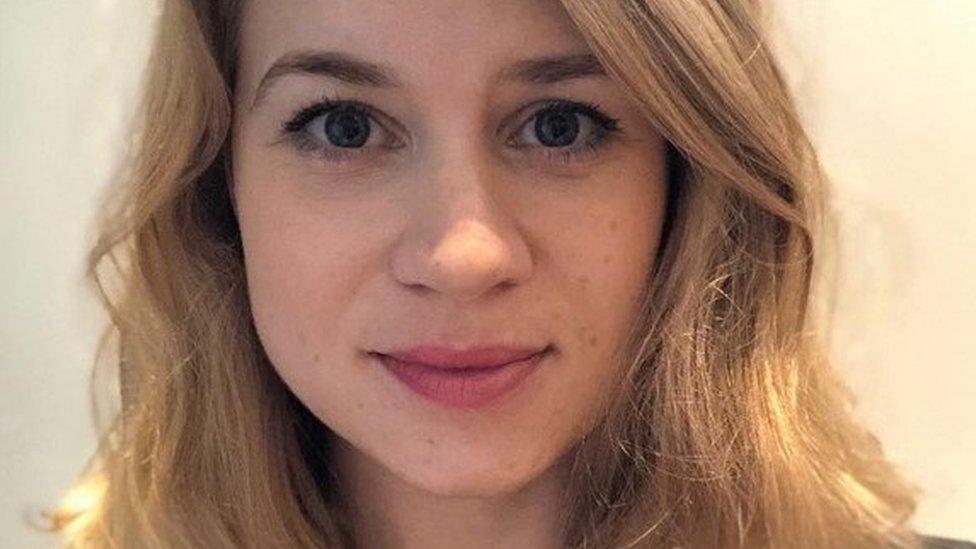
The organisers said they were aware of the challenges of organising a Covid-secure vigil, and had "proactively reached out" to Lambeth Council and the Met Police to ensure the event "could safely and legally take place".
The police initially said they were developing a local policing plan to allow the vigil to take place, according to the organisers.
But they added: "Since this statement, the Metropolitan Police have reversed their position and stated the vigil would be unlawful and that, as organisers, we could face tens of thousands of pounds in fines and criminal prosecution under the Serious Crimes Act."

What are the rules on gatherings in England?
Under the current lockdown rules two people can meet for recreation outside, which can include "coffee on a bench"
From 29 March people will be allowed to meet outdoors, either with one other household or within the "rule of six"
Police can break up illegal gatherings and issue fines of £10,000 to someone holding a gathering of more than 30 people.
During last year's restrictions, when Black Lives Matter and anti-lockdown demonstrations took place, police took a hands-off approach to protests

Human rights lawyers representing Reclaim These Streets have written to the Met challenging its interpretation of coronavirus legislation, the statement adds.
"Their view is that the Metropolitan Police are wrong in their interpretation of the law and that socially distant, outdoor gathering[s] of this kind are allowed under the current lockdown regulations, when read together with the Human Rights Act," it says.
In a statement the Metropolitan Police said: "We understand the public's strength of feeling and are aware of the statement issued by Reclaim The Streets with regard to a planned vigil for Sarah Everard in Clapham Common this weekend.
"We remain in discussion with the organisers about this event in light of the current Covid regulations."
Met Police Assistant Commissioner Nick Ephgrave said he knew the public felt "hurt and angry" and said he recognised wider concerns have been raised about the safety of women in public spaces in London.

Disappearance timeline:
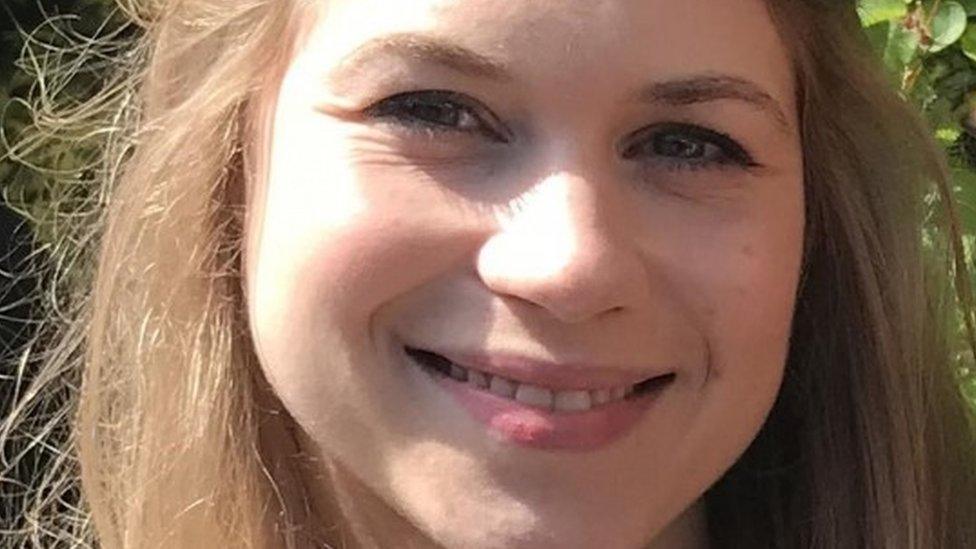
3 March: Sarah Everard vanishes after leaving a friend's house on Leathwaite Road, Battersea, about 21:00 GMT
5 March: Met Police are "increasingly concerned" for Ms Everard and make an appeal on Twitter, external
6 March: Ms Everard's family say her disappearance is "totally out of character" as officers search Clapham Common's ponds
7 March: Footage taken from a doorbell camera shows Ms Everard walking alone along the A205 Poynder Road towards Tulse Hill at 21:30. Police say it is unclear whether or not she reached her house in Brixton
8 March: More than 120 calls are made from the public on the case and more than 750 homes are visited as part of the investigation
9 March: A serving officer is arrested in Kent along with a woman who is held on suspicion of assisting an offender
10 March: Met Police Assistant Commissioner Nick Ephgrave describes the arrest as "shocking and deeply disturbing". Extensive searches are carried out in parts of Kent. Later in the evening Commissioner Dame Cressida Dick said human remains have been found in a woodland in Kent
11 March: Suspect taken to hospital after suffering head injuries while in custody. The woman arrested on suspicion of assisting an offender is released on bail

- Published30 June 2022
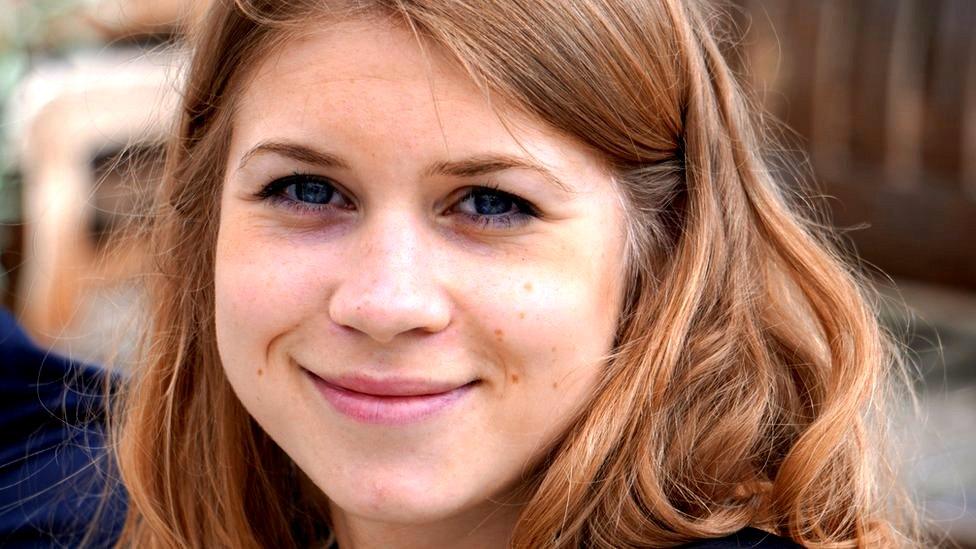
- Published12 March 2021
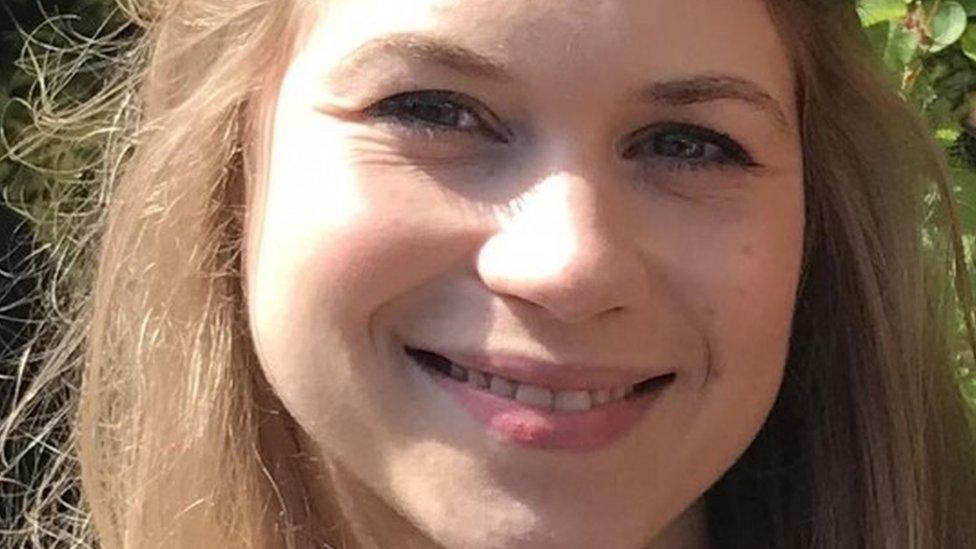
- Published11 March 2021
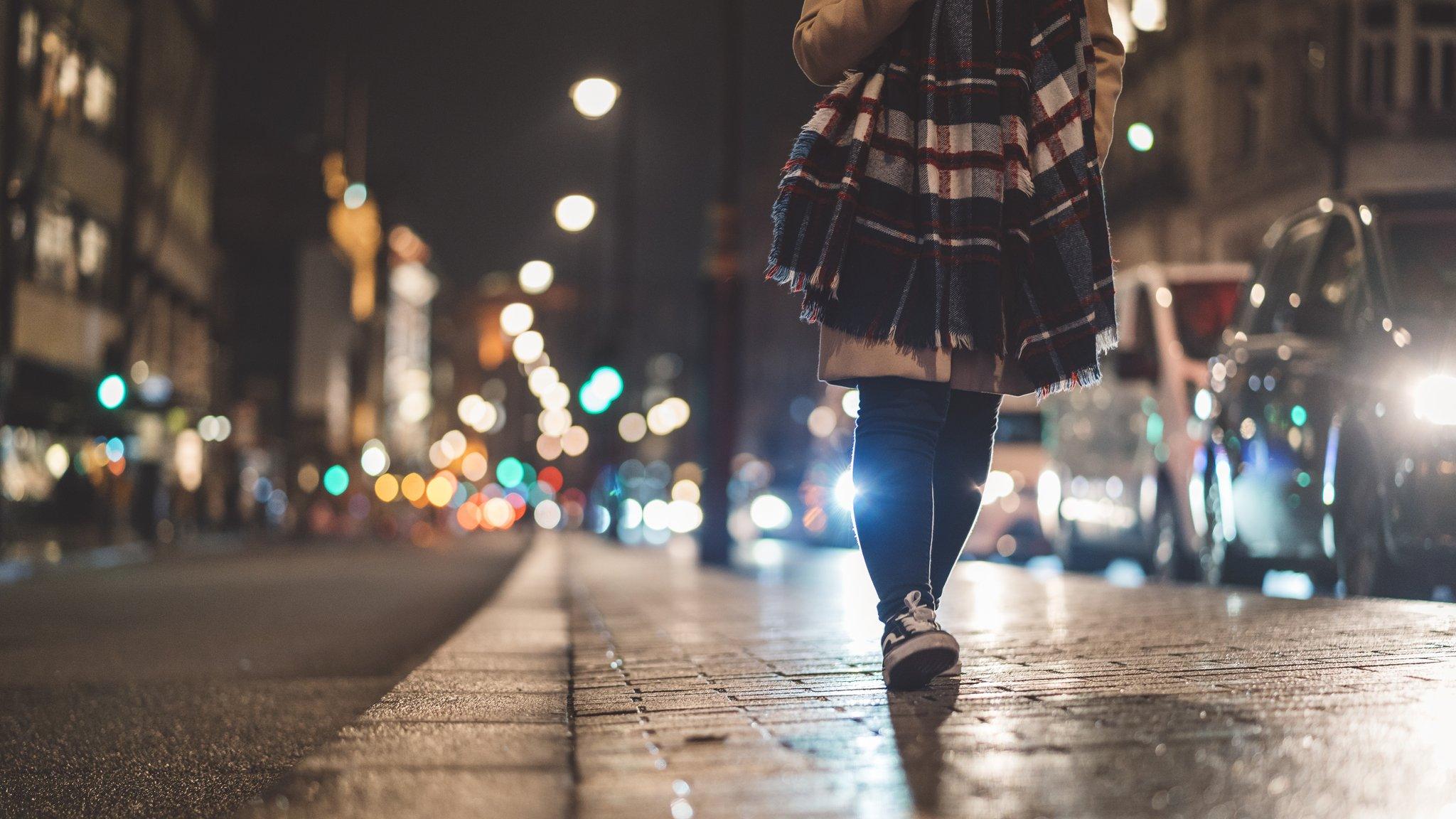
- Published11 March 2021
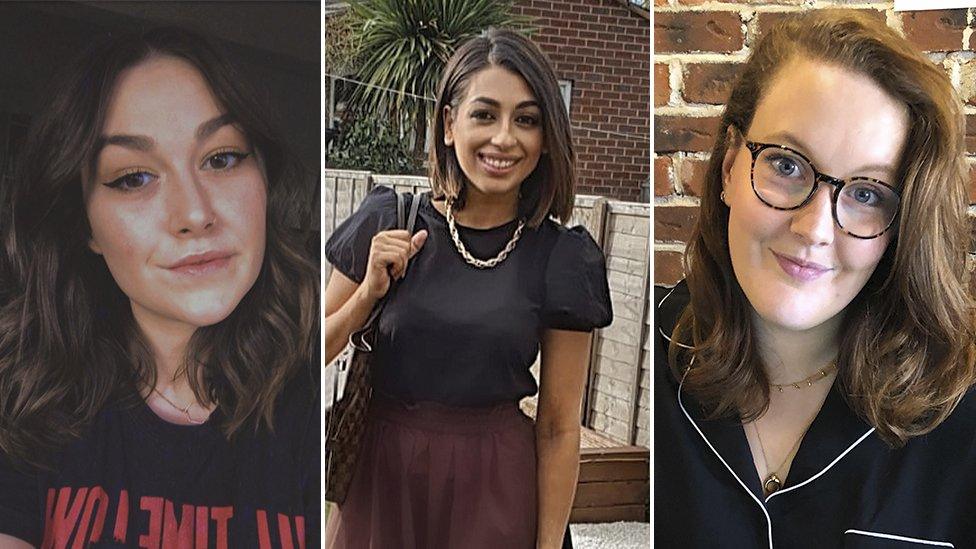
- Published12 March 2021
